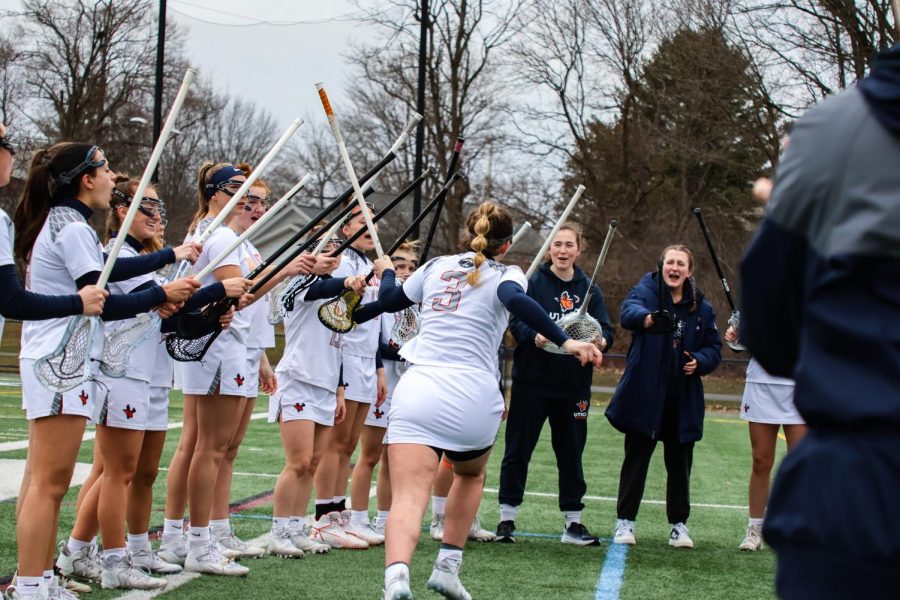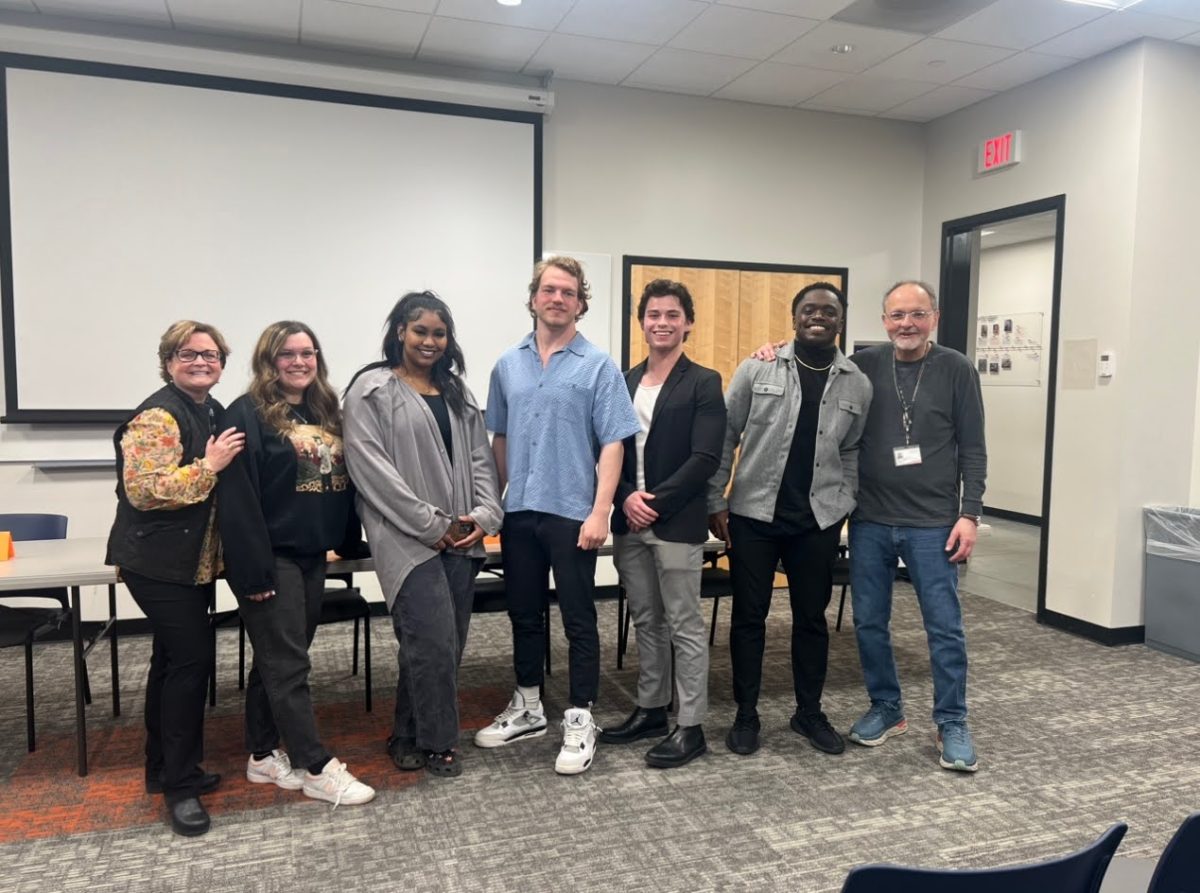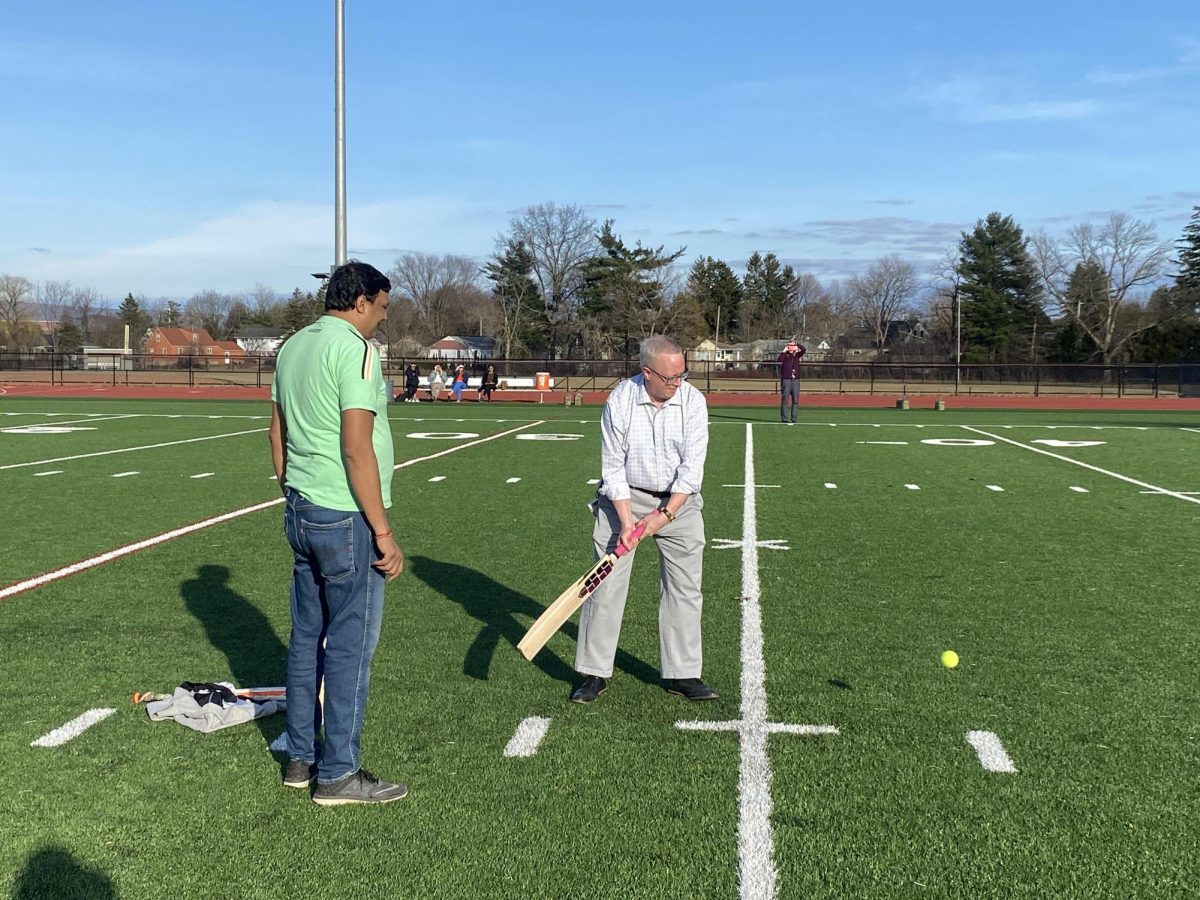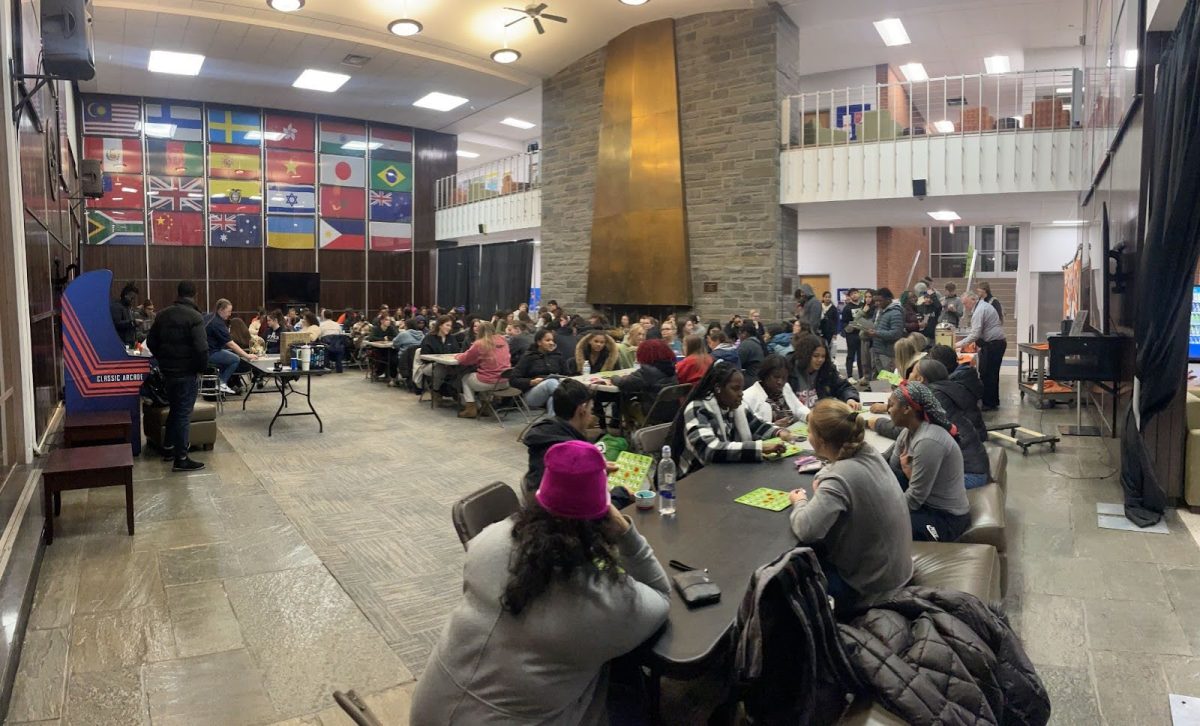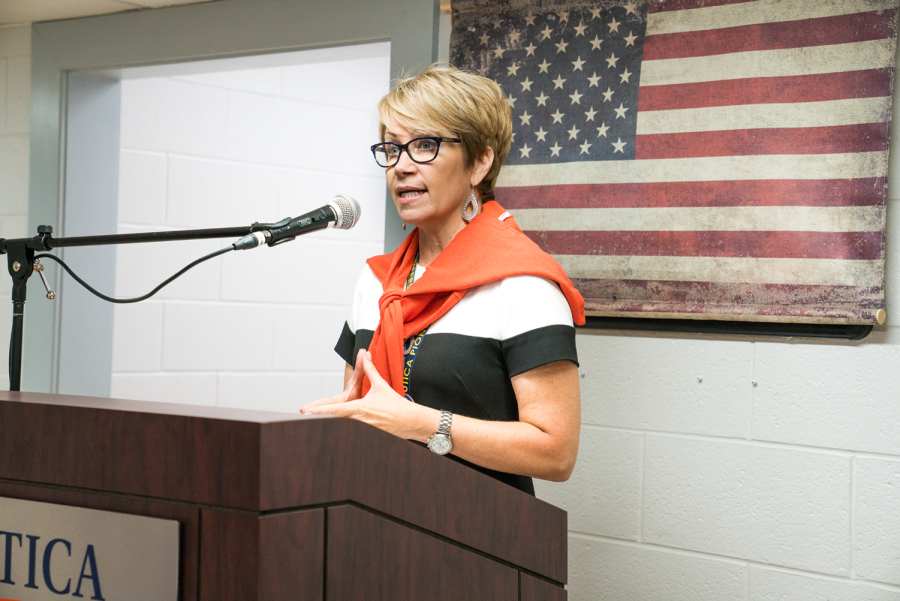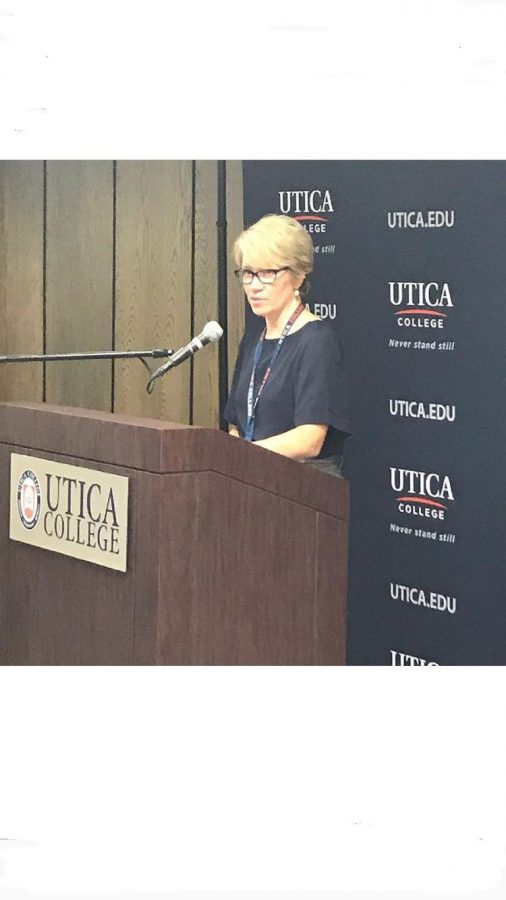In an effort to reduce acts of domestic violence and sexual assault on campus, Utica College is launching a preventative program called Safe Trax.
This program is a multi-pronged effort that works through awareness, education and preventative measures to cover a variety of safety needs. Safe Trax is a federal grant-funded program that is being implemented out of the Violence Against Women Office.
“I believe Utica College does a very good job of educating students on issues of sexual assault, sexual consent, dating violence and stalking,” UC President Laura Casamento said. “We’re approaching the opportunity this federal grant affords us from a position of strength. In that respect, the Safe Trax Program is about going further beyond the processes, practices, and training that we already have in place.”
Exisiting efforts to make UC a safer community include a campus prevention network, online sexual assault prevention training, alcohol abuse prevention and other education platforms. Many other efforts, such as prevention specialist services, have been provided through partnerships with local resources.
Funding for Safe Trax was provided by the United States Department of Justice through a nearly $300,000 grant.
“We are incredibly thrilled to receive this grant,” said Timothy Ecklund, Dean of Students and Campus Life; “Sexual assault is an important problem for the campus to be addressing.”
The multitrack program will allow UC to hire a full-time preventative specialist. Three of the programs under Safe Trax will include education in bystander intervention.
“Bystander intervention programs really access the goodwill of the community to change behavior or intervene in situations, so that unsafe situations are stopped or maybe don’t happen at all,” Ecklund said.
The first track of the program, called Green Dot, will teach people to read a situation and interrupt dangerous circumstances. Green Dot’s training will also give them the tools and motivation to interrupt an incident.
Another education program, Men Can Stop Rape, teaches men how to intervene before assault happens. This is a local chapter of a national program which provides a platform for men to educate each other about how to stop sex assault.
A third program is focused on stalking and is called Where Do You Stand? This program works to eliminate stalking, which Ecklund said is more preventative than people think.
Utica College will be working with the Utica Police Department in sexual violence and assault prevention. Utica College will continue its relationship for training and other purposes with the NYS police campus sexual assault victims unit.
“The program will move our efforts forward in many ways, but two stand out in particular,” Casamento said. “One, the grant funding will allow us to hire a full-time program coordinator, an individual who is singularly focused on these issues. Two, the program will enhance our collaboration with the YWCA, Mohawk Valley Health System, and the Utica Police Department. These are agencies with which the College already has strong relationships and that provide incredible services and resources around sexual violence, dating violence, and stalking.”
Most of the services offered through the grant will cut out the third-party contracts, which will reduce the research that the partners will have to conduct on the safety needs at Utica College.
“We know the campus, we know our students, we know what our students need,” Ecklund said.
Ecklund said that Title IX and the Office of Civil Rights through the Department of Education have provided many unfunded mandates regarding sexual assault prevention.
“Prevention has become a big push in higher education,” Ecklund said.
However, educational institutions are often left to come up with the funding on their own to comply.
“This is a way to meet those standards,” he said, “It allows us to do the kind of work that we need to do on campus.”
Beyond adhering to the requirements, Ecklund said that this program is absolutely needed at Utica College.
“A Campus Climate survey done in 2017 shows that 6.9 percent of students have reported sexual assault on campus,” he said. “Those are incidents that have been reported.”
That campus statistic surprises some students.
“It shouldn’t even be that close,” said Noah Tran, a nursing program junior.
The national statistic is more alarming, but it is based off of anonymous surveys rather than filed reports of incidents.
“It is safe to say that the national statistics on sexual assault is that one in four women routinely report having been sexually assaulted while in college,” Ecklund said.
Students weighed in on what they thought of the new Safe Trax program that is being implemented to protect them from perpetrators.
“I think it’s good to have that initiative so sexual assault doesn’t happen,” said Lindsey Chenier, a second-year graduate student in Occupational Therapy.
Chenier agrees with the three bystander intervention programs under Safe Trax.
“They are all equally important,” she said. “It is definitely important to protect yourself, but there is not always something you can do, so educating other people is important.”
Ally Marsh, a sophomore biology major, said she feels safe on campus, but that people may not feel comfortable reporting an incident.
“A lot of the times I feel like people don’t report because it would ruin the offender’s life,” she said. “Some people never speak up, and it’s just kind of how it is for them.”
“Misplaced shame” was another reason Marsh gave for victims failing to report a sexual assault incident, and other students agreed.
“A lot of people don’t feel comfortable reporting sexual assault or speaking out loud because they might feel embarrassed,” said Jay Samuel, junior in the business management major.
Samuel said education is key to reducing the campus rate of sexual assault.
“A lot of men don’t realize that they are doing it,” he said. “It’s not just physical, it can be verbal as well.”
Health Studies senior Lauren Macdonald said that the bystander intervention arm of the Safe Trax program is more important than the Men Can Stop Rape and the Stalking programs.
“There’s a lot of things that we all see that we don’t know how to address, but [bystander intervention] could save someone’s life,” she said.
Amanda Thut, a junior in the nursing major, is an RA and hears about incidents on campus.
“I know that [sexual assault] happens on campus,” she said. “It’s not so much physical domestic abuse as more emotional and verbal abuse.”
Safe Trax is being implemented at Utica College, and the question now is: Will it work to cut back on sexual assault and protect women?
“I think the program will make a difference, but to what extent?” said Tran. “You can try to limit sexual assault, but it is hard. If I bet my life upon it, its occurring here on campus. It’s bad to say that it’s bound to happen, but people are going to do it.”
Casamento and Ecklund have high hopes for the success of Safe Trax.
“I am incredibly thrilled to address this problem in a more in-depth way through the support of this grant,” Ecklund said. “Sexual assault prevention is one of the things that is vitally important to our campus. We are thankful to Assemblyman Brindisi and to the Office of Violence Against Women.”



















![President Todd Pfannestiel poses with Jeremy Thurston chairperson Board of Trustees [left] and former chairperson Robert Brvenik [right] after accepting the universitys institutional charter.](https://uticatangerine.com/wp-content/uploads/2023/10/unnamed.jpeg)














